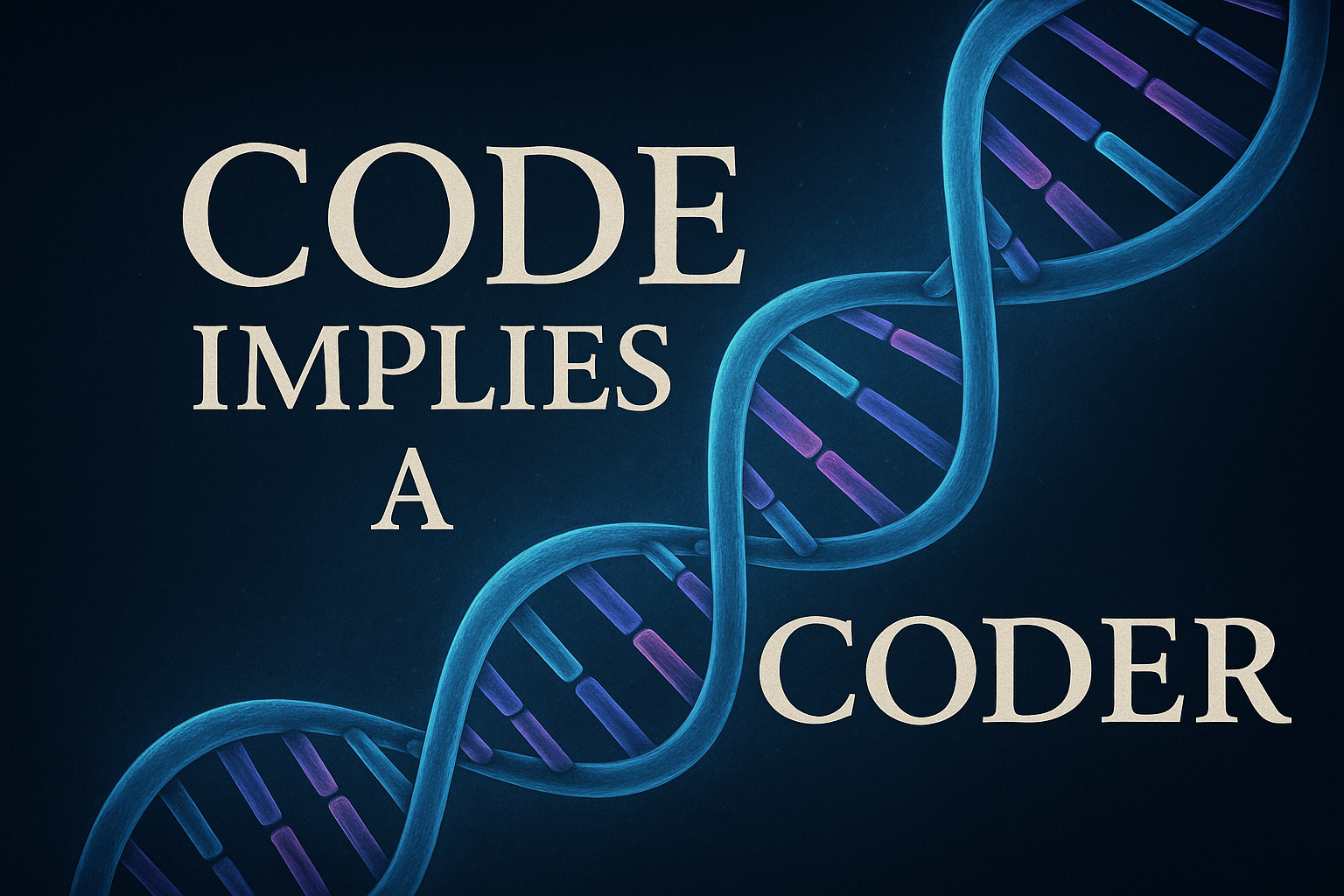As a computer scientist, I’ve spent my life working with code. I know the difference between randomness and logic, noise and signal. Code has structure. It has syntax. It follows rules and carries intention. You don’t get code by accident. You don’t get meaning without mind.
Which brings me to the human genome, the very discovery of which should have been the nail in evolution’s coffin.
DNA is not just a molecule. It is a message—a four-letter digital language that encodes the construction and operation of life with stunning efficiency. It contains conditional logic, error correction, data compression, and parallel processing. Biologists speak of the “genetic code” for good reason: it’s a formal system of symbolic representation.
And herein lies the issue.
From an information-theoretic standpoint, code always implies a coder. In every domain we know—computing, linguistics, cryptography—information of this kind is generated by intelligent agents. You don’t get operating systems by pouring ink on silicon. You don’t get Shakespeare by dropping Scrabble tiles. And yet we are told to believe that DNA—orders of magnitude more efficient than anything human minds have yet created—arose by chance and necessity.
Mutations and natural selection, we are told, are sufficient to explain all biological complexity. But these are not creators. They are editors at best—rearranging, copying, and deleting what is already there. A broken gene might help a bacterium survive an antibiotic, but this is degradation, not innovation. It’s survival, not syntax.
The deeper you go, the more you find not less order, but more—more layered meaning, more interdependency, more irreducible coordination. If we found a functioning program embedded in Martian soil, we’d immediately conclude intelligence. Why do we not do the same with the code in our own cells?
Atheist philosophers Thomas Nagel answers that question:
“I want atheism to be true… It isn’t just that I don’t believe in God… I don’t want there to be a God.”
— The Last Word, p. 130
Atheism has no explanation for the origin of coded information. It must assume the very thing it denies: purpose, pattern, and meaning.
Theologically, none of this is surprising. John 1 tells us that “In the beginning was the Word (λόγος)”—the rational principle, the speaker behind all syntax and sense. “All things were made by Him, and without Him was not anything made that was made.” If God is the eternal Logos, then code is His signature—woven into the fabric of life as both a testimony and a trace.
The Christian worldview fits the evidence. Information requires a mind. Life requires a Creator. And the genome itself is an echo of the voice that first said, “Let there be.”


Leave a Reply to Mark A DelSignore Cancel reply